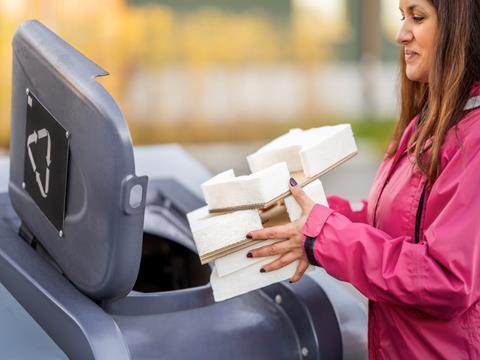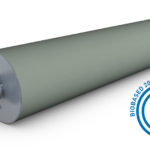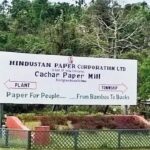The surge in e-commerce sales has resulted in an increasing number of packages entering people’s homes. This means adapting to the specific demands of e-commerce packaging. But how to do this without increasing the amount of plastics? Here’s the story behind Papira®, Stora Enso’s breakthrough paper-based foam.
E-commerce changes customer and packaging needs
Together with booming online shopping, the role of e-commerce packaging is growing. This means retailers are fighting for consumers’ attention while striving to make the unboxing process as smooth as possible for their busy customers.
This surge in e-commerce behaviour also means that items must be packed in a shock-proof way. Cushioning is an essential part of protecting fragile goods from shock and vibration. However, the expanded plastic foams used in cushioning are currently made of crude oil and are hard to recycle. At the same time, national and global policies are underway to prevent the use of plastics that could potentially end up polluting the environment. How can we respond to these two clashing megatrends in one go?
The story of Papira® by Stora Enso – the recyclable packaging foam:
Research group develops paper-based foam for industry use
– The idea for a recyclable cushioning foam arose in a research group led by Professor Lars Wågberg at the Royal Institute of Technology in Stockholm, says Paula Martirez, business developer at Stora Enso.
In the wake of this research, a company called Cellutech was established in 2013, serving as a link between academia and the industry. The idea was to bring cutting-edge materials to the market by developing innovative, renewable products using raw materials from the forest.
The group was able to use wood pulp in making a stable foam that could be dried in an efficient way. The result was a light and strong material with good mechanical properties. Thanks to thorough research and development work, Papira® became entirely bio-based and recyclable, consisting of pulp and a small part of bio-based additives. It is also delivered as sheets in the same way as polyethylene and polyurethane.
– Sheets are laminated on top of each other to build up the structure around the intended product held by the packaging. This production method enables complex packaging solutions for any shape of product, Martirez explains.
Part of Stora Enso since 2018
Acquired by Stora Enso in 2018, Cellutech joined the Stora Enso’s Biomaterials division. After the development breakthrough, a pilot plant was built at the premises of Stora Enso’s first fossil-CO₂ emission free board mill in Fors, Sweden. The new facility enabled the development, optimisation, and market testing of Papira®.
– The main purpose of the pilot is to validate both the process and the usage of Papira® in different applications. With feedback from customers and different actors in the value chain we can prepare for different scenarios for the future, Martirez adds.
Since the pilot plant has been up and running, the learning curve to optimize the process has increased.
– It is also the pilot’s purpose that we learn how to scale the production to full commercialisation. All operations of the pilot plant run completely fossil free, a fact that we take great pride in, Martirez adds.
What’s next with Papira®?
Currently, Stora Enso is working with multiple customers on performing tests and validation of the material and its properties in various applications. These projects include a variety of potential and current customers from different products segments.
– We see it as essential to test the material all the way to the end user through smaller prototype series with pioneers in the market. This validates the process and the product via packaging prototypes using Papira®, Martirez says.
The idea is to make Papira® the new standard in protective packaging. To make this our reality, Stora Enso will gradually scale up operations while developing this material. Potential customers for Papira® include all who need to protect fragile products such as electronics, household appliances, furniture, industrial products, and expensive consumer products during transport.
– We want to meet the needs of our customers in performance, functionality, and availability and the initial reactions have been very positive. If you think Papira would work as a packaging solution for your company, don’t hesitate to reach out to us, Martirez concludes.





